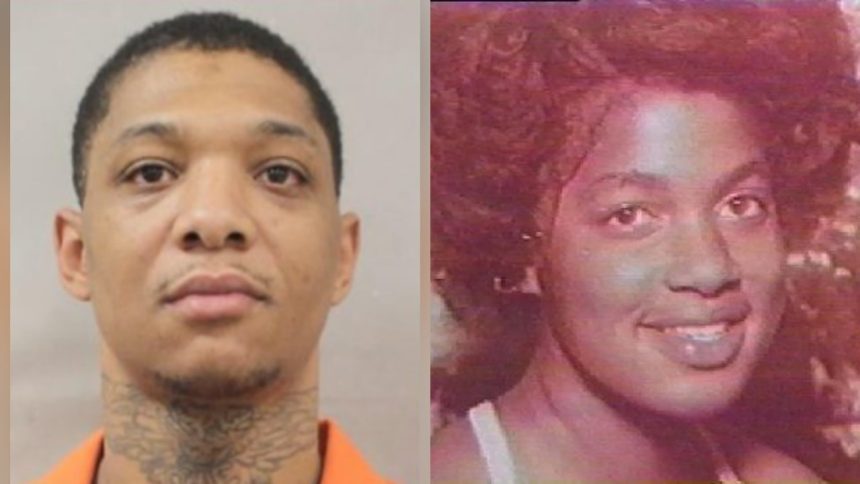The story of Derrick Groves is inextricably linked to a dark chapter in New Orleans history, one written decades before he was even born. His life, marked by violence and crime, is shadowed by the brutal death of his grandmother, Kim Groves, a tragedy that continues to resonate through the city’s Lower 9th Ward. The connection between the convicted double murderer who captured national headlines during a five-month manhunt and his grandma’s death at the hands of a corrupt police officer adds a complex layer to an already shocking tale. It’s a story that forces a conversation about generational trauma, community pain, and the long-lasting repercussions of injustice.
In October 1994, Kim Groves was a 32-year-old mother of three living in the Lower 9th Ward. She had filed a police brutality report against a notoriously corrupt New Orleans Police Department officer, Len Davis. For having the courage to report his actions, Davis ordered a hit on her. Kim Groves was gunned down execution-style on Alabo Street, a murder that happened in front of her children and horrified the entire community. Decades later, the pain remains fresh; neighbors still place fresh flower arrangements at the exact spot where she was killed, and the family home now sits abandoned, a stark reminder of the vibrant life that was stolen.
Len Davis was convicted for his role in the murder in 1996, and his original death sentence was later commuted to life in prison. The city would eventually settle a civil rights lawsuit with Kim’s family for $1.5 million, but the emotional scars, as one family member put it, created a “constant nightmare” that would replay for years to come.
A Life Shaped by Circumstance
Derrick Groves was born about three years after his grandmother’s murder, meaning he entered a world already defined by her absence and the brutal circumstances surrounding it. He grew up knowing that his grandma was killed by a police officer she was supposed to be able to trust. This history fostered a deep-seated mistrust in law enforcement within the community, with one local noting, “You’re supposed to be able to trust the police. So now you don’t trust them. Why would you? You killed my grandmother.”
You Might Like: Arturo Gatti’s Family: Meet His Wife, Amanda Rodrigues
Those who knew Derrick described his life as being “filled with unfortunate circumstances,” a path that also included the murder of his brother. Mental health experts point to such generational trauma as a potential factor in future behavior, with one therapist noting that about 60% of youth in New Orleans deal with some form of PTSD, a rate four times the national average.

Despite this tragic family history, Derrick Groves ultimately carved his own path of violence. By 2024, he was a convicted double murderer, found guilty of killing Jamar Robinson and Byron Jackson by opening fire with an AK-47-style rifle at a Mardi Gras family gathering in 2018. He was also convicted on two counts of attempted second-degree murder and had pleaded guilty to two separate counts of manslaughter.
Prosecutors described him as a bully who “routinely used violence to lash out and silence witnesses,” and they used his own social media posts, in which he brazenly boasted about the violence, to help secure his conviction. His violent streak continued even behind bars, where he pleaded guilty to battery of a correctional officer. At the time of his escape, he was awaiting a mandatory life sentence for the double murder conviction.
The Escape and a Community’s Plea
On May 16, 2025, Derrick Groves became one of ten inmates to escape the Orleans Justice Center in a brazen jailbreak. The men exploited a faulty cell door and crawled through a hole in the wall behind a toilet, with their absence going unnoticed until a morning headcount. While most escapees were recaptured within weeks, Groves eluded authorities for nearly five months, becoming the final fugitive. His time on the run ended on October 8, 2025, when U.S. Marshals and an Atlanta police SWAT team found him hiding in a crawl space of a home in southwest Atlanta. Authorities had to deploy gas multiple times to force him out before taking him into custody.
During his time on the run, Groves’s story garnered controversial sympathy on social media, with some users linking his actions to his grandmother’s death and using hashtags like #JusticeForKimGroves and #StayFreeWoo. However, the District Attorney’s office dismissed any direct link between his crimes and his grandma’s murder as a “newly generated urban myth.” Meanwhile, his own aunt, Jasmine Groves—who has been a vocal advocate for police oversight since her mother’s killing—publicly pleaded for Derrick to turn himself in. She expressed hope that law enforcement would not use deadly force, describing the entire ordeal for the family as like “reliving a constant nightmare.”
Also See: Jonathan Rinderknecht’s Political Ties: A Biden Donor
The capture of Derrick Groves closes a lengthy manhunt, but for a family and a community, it represents just another painful chapter in a story of trauma that has now stretched across three generations.



